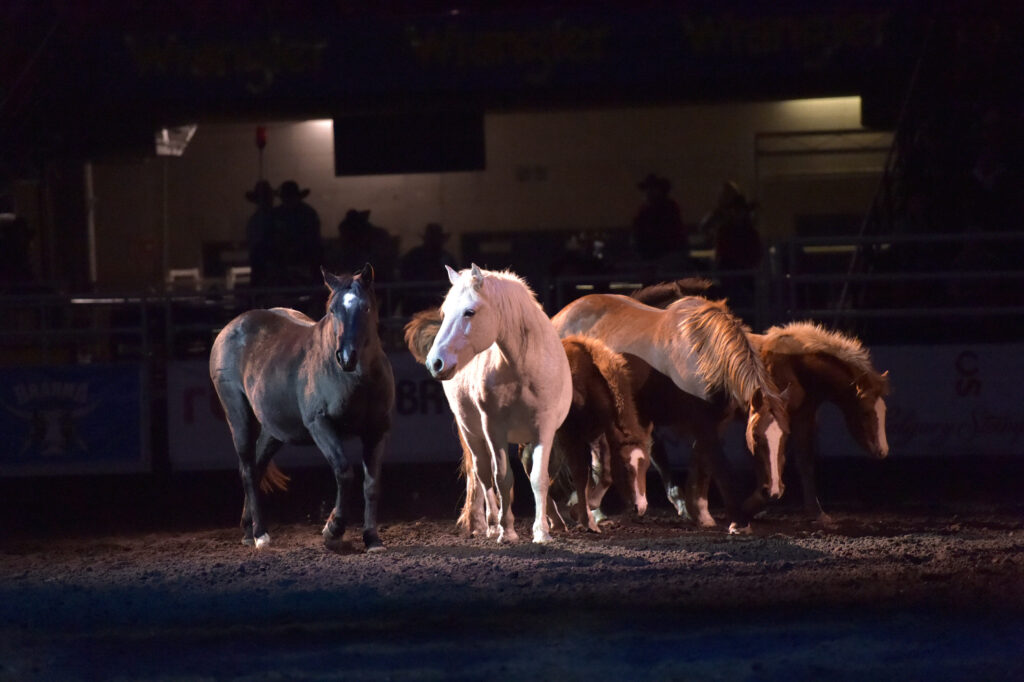Animal Welfare

Rodeo is a part of a very unique lifestyle, a tradition handed down to us from our pioneering forefathers who developed the various events and evolved them into competitions of individuals and animals competing against their neighbouring ranches to see whose “outfit” had the most skilled
cowhands and the best animals.
The tradition, although more finely regulated today, continues, just like the sports of hockey, baseball, football and basketball that are enjoyed by our urban friends. We accept an added responsibility that goes with our chosen lifestyle, the welfare of our animal competitors. We continue to be proactive in regard to the care and handling of our rodeo livestock.
The membership of the Canadian Professional Rodeo Association is comprised of some 1,400 people who own large numbers of livestock and as handlers of farm animals, are generally considered experts when it comes to the care & responsibility of their animals.
Most have more than a monetary tie to animals. Nearly all have lived and worked around animals for most of their lives, and possess a high degree of respect and appreciation for livestock.
Our rodeo stock contractors are expert stockmen and are very proud of their animals. They own & care for hundreds of head of livestock. They take pride in the conditioning and athletic ability of their animals, and, like a well-trained human athlete, an animal can perform to the best of its ability only if it is healthy and in top physical condition.
Their young ranch-raised horses are fed the best hay, grass and grains in order to enhance their growth and stamina. Generally, at the age of three, the horses are tested as to their bucking ability and then ‘turned out’ to roam free for another three to four years in order to let their muscles and bones completely develop. They then come back to live out their adult life as a bucking horse with lots of time between rodeos to rest and be physically ready for the next competition.
Our stock contractors sort, load and transport their own animals to rodeo events. They are well aware of which animals get along with each other so they are loaded into their traveling compartments with that in mind on an ongoing basis. This helps to alleviate stress while traveling.
Our rodeo committees ensure that the facilities are inspected prior to the arrival of the animals and contestants in order to minimize the chance of injury to animals and contestants.
Professional rodeo judges inspect the livestock prior to each rodeo performance and any animal suspected of not being able to compete to the best of its ability is ‘pulled’ from the performance. The rodeo judges are responsible for the enforcement of all CPRA rules including a section that deals exclusively with the humane treatment of livestock. The association’s rules and regulations include more than 60 rules dealing with the treatment of livestock. Our rodeo judges undergo constant training and evaluation to ensure their knowledge and understanding of the rules are being maintained and that they are correctly enforcing them, particularly those regarding the care and treatment of rodeo livestock.
Animal welfare is a major ongoing initiative of the Canadian Professional Rodeo Association and we pledge to continue the strict enforcement of our rules and regulations.

